4-Day Exhilarating Experience: Mumbai, India Travel Itinerary
Mumbai, India
4 days
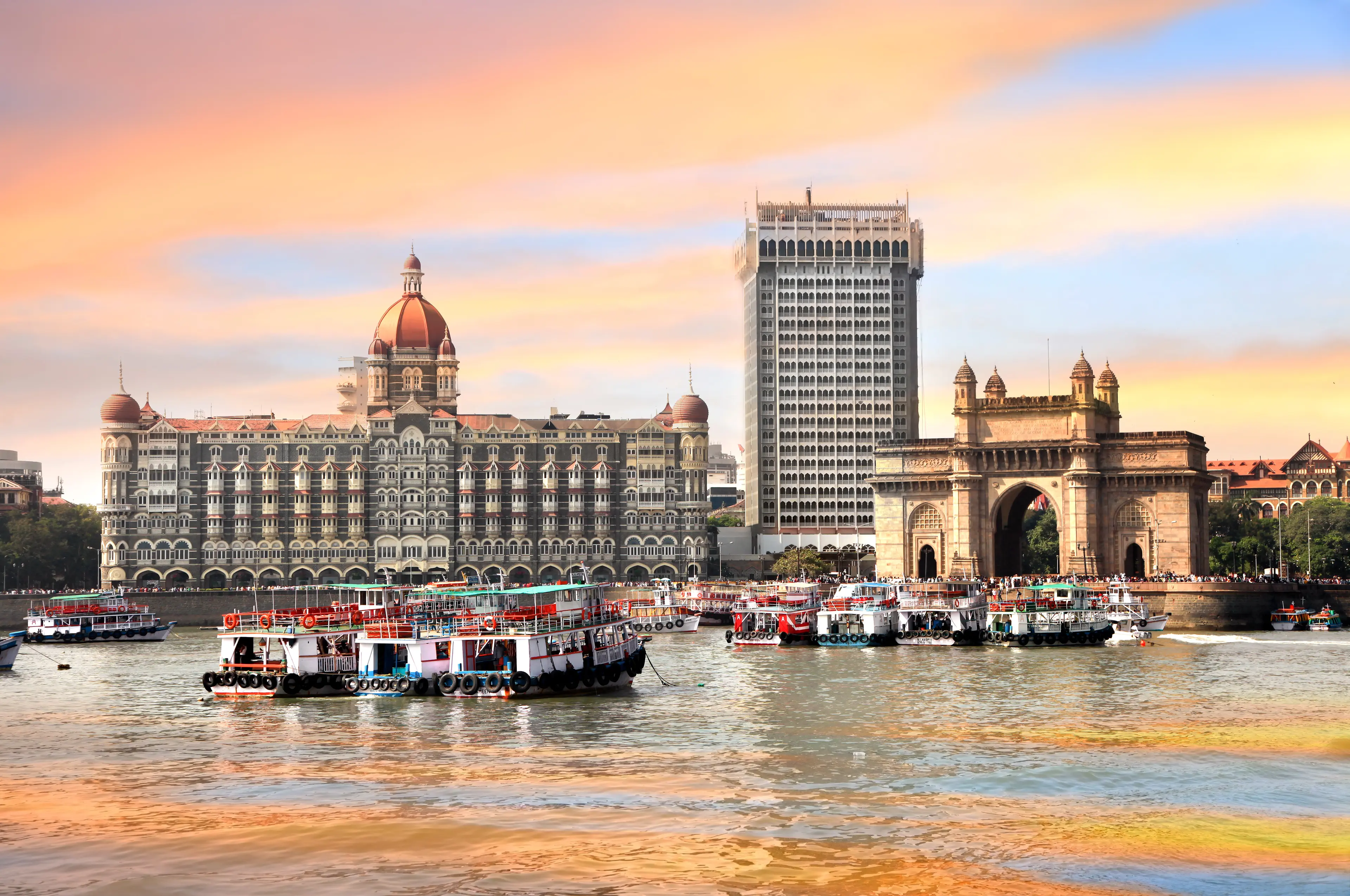
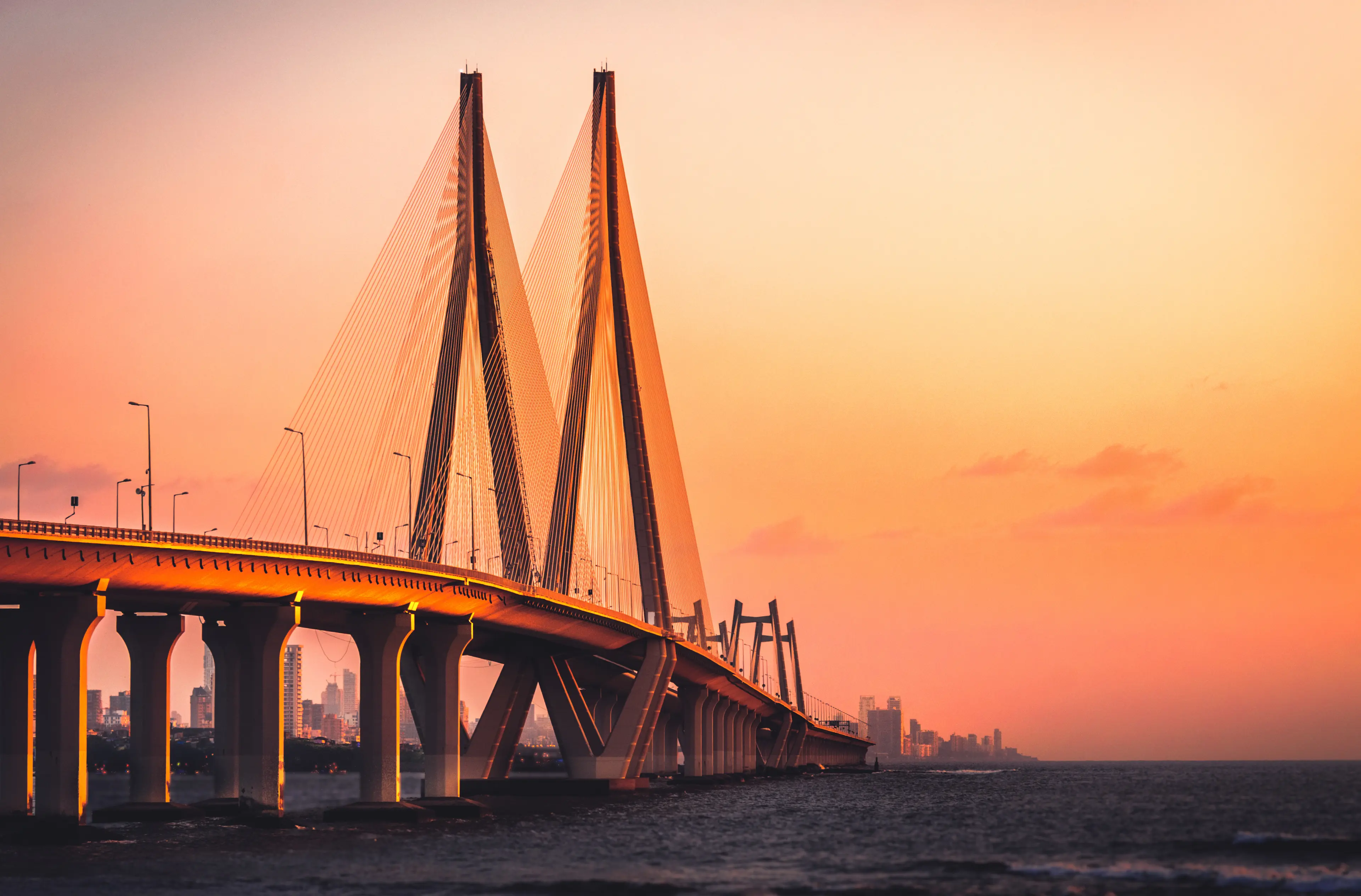

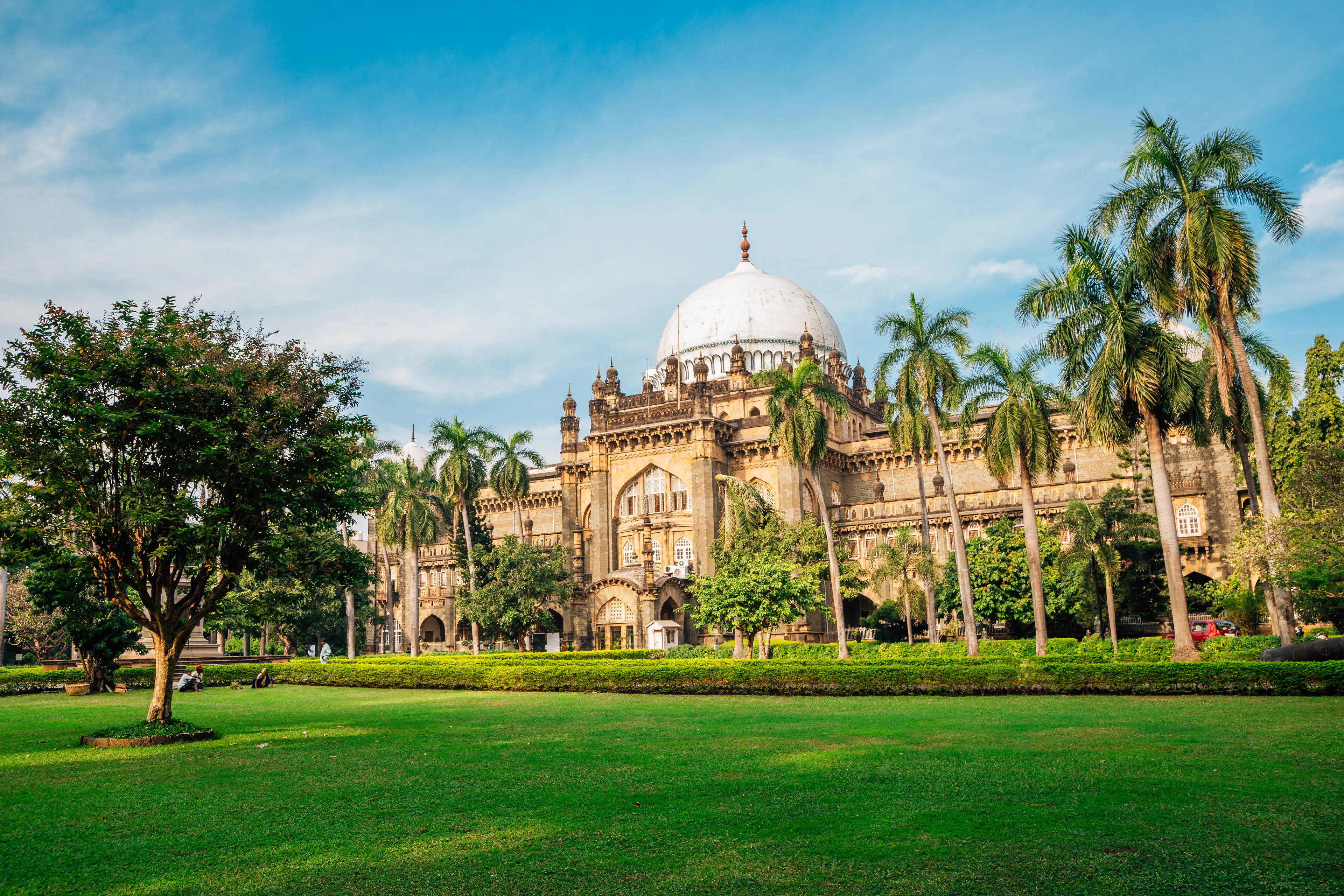
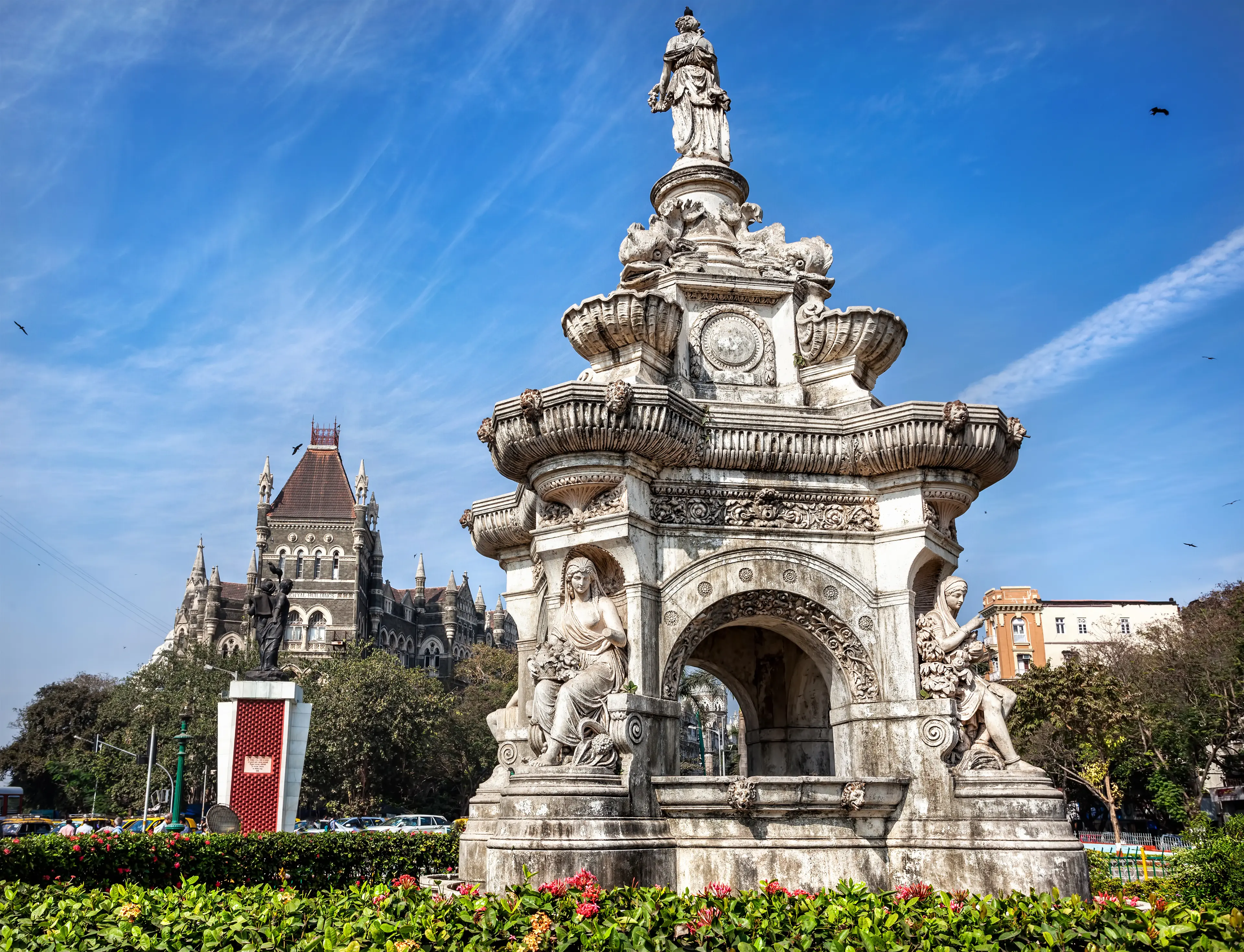
About Mumbai, India
Experience the vibrant city of Mumbai, India's financial powerhouse and the heart of Bollywood. This bustling metropolis offers a blend of colonial architecture, modern skyscrapers, diverse cuisine, and colorful bazaars. Visit iconic landmarks like the Gateway of India, the Taj Mahal Palace Hotel, and the UNESCO World Heritage site - Chhatrapati Shivaji Maharaj Terminus. Explore the serene beaches of Juhu and Chowpatty, and enjoy the lush greenery of Sanjay Gandhi National Park. Dive into Mumbai's rich culture at Elephanta Caves, a network of sculpted caves located on Elephanta Island. Savor the city's culinary delights, from street food to fine dining. Mumbai, a city that never sleeps, offers an unforgettable journey of discovery and exploration.
4-Day Itinerary
Day 2
Experiencing the Natural Beauty and Religious Sites of Mumbai
Morning
Start your day with a visit to the Sanjay Gandhi National Park. Enjoy the lush greenery and wildlife.
Lunch
Enjoy a delicious South Indian meal for lunch. Try dishes like Dosa, Idli, and Sambar.
Afternoon
Visit the Haji Ali Dargah, a historic mosque and tomb located on an islet off the coast of Worli. The serene atmosphere and the beautiful sea view make it a must-visit.
Dinner
Have a delicious seafood dinner at a local restaurant. Try some popular dishes like Prawn Curry, Fish Fry, and Crab Masala.
Evening
Visit Juhu Beach, one of the most famous beaches in Mumbai. Enjoy the cool sea breeze and the lively atmosphere.
Day 3
Uncovering the Ancient Wonders and Coastal Delights of Mumbai
Morning
Start your day with a visit to the Elephanta Caves, a UNESCO World Heritage Site. Explore the rock-cut cave temples dedicated to Shiva.
Lunch
Enjoy a traditional Konkani meal for lunch. This coastal cuisine is known for its use of coconut and seafood.
Afternoon
Visit the Prince of Wales Museum, a grand museum that houses artifacts from ancient India. Spend your afternoon exploring the rich history and culture of India.
Dinner
Have a delicious Mughlai dinner at a local restaurant. Try some popular dishes like Kebabs, Biryani, and Naan.
Evening
Take a leisurely stroll along the Bandstand Promenade. Enjoy the cool sea breeze and the city lights.
Day 4
Discovering the Spiritual and Scientific Facets of Mumbai
Morning
Start your day with a visit to the Siddhivinayak Temple, one of the most famous temples in Mumbai. Seek blessings and enjoy the serene atmosphere.
Lunch
Enjoy a traditional Gujarati Thali for lunch. This meal includes a variety of dishes that showcase the rich flavors of Gujarat.
Afternoon
Visit the Nehru Science Centre, a great place to learn about science and technology. It's a fun and educational experience for both kids and adults.
Dinner
Have a delicious Parsi dinner at a local restaurant. Try some popular dishes like Dhansak, Patra ni Machhi, and Berry Pulao.
Evening
End your trip with a visit to the iconic Bandra-Worli Sea Link. Enjoy the beautiful view of the city and the sea.
Attractions in Itinerary (11)

1Gateway of India
An arch-monument built in the early twentieth century. It is located on the waterfront in Apollo Bunder area in South Mumbai.

2Chhatrapati Shivaji Maharaj Vastu Sangrahalaya
One of the premier art and history museums in India. It was founded in the early years of the 20th century by prominent citizens of Mumbai.

3Marine Drive
A 3.6-kilometre-long boulevard in South Mumbai. It is a 'C'-shaped six-lane concrete road along the coast, which is a natural bay.

4Sanjay Gandhi National Park
A large protected area in the northern part of Mumbai. It encompasses an area of 104 km2 (40 sq mi) and is surrounded on three sides by India's most populous city.

5Haji Ali Dargah
A mosque and dargah (tomb) located on an islet off the coast of Worli in the southern part of Mumbai.

6Juhu Beach
One of the most famous and most visited beaches on the shores of the Arabian Sea. It is situated in 'Ville Parle'.

7Elephanta Caves
A network of sculpted caves located on Elephanta Island. The caves contain rock cut stone sculptures that show syncretism of Hindu and Buddhist ideas and iconography.

8Prince of Wales Museum
Also known as the Chhatrapati Shivaji Maharaj Vastu Sangrahalaya, this is one of the premier art and history museums in India. It houses several collections of ancient artworks, sculptures, and artifacts.

9Siddhivinayak Temple
The Shree Siddhivinayak Ganapati Mandir is a Hindu temple dedicated to Lord Shri Ganesh. It is one of the richest temples in Mumbai.
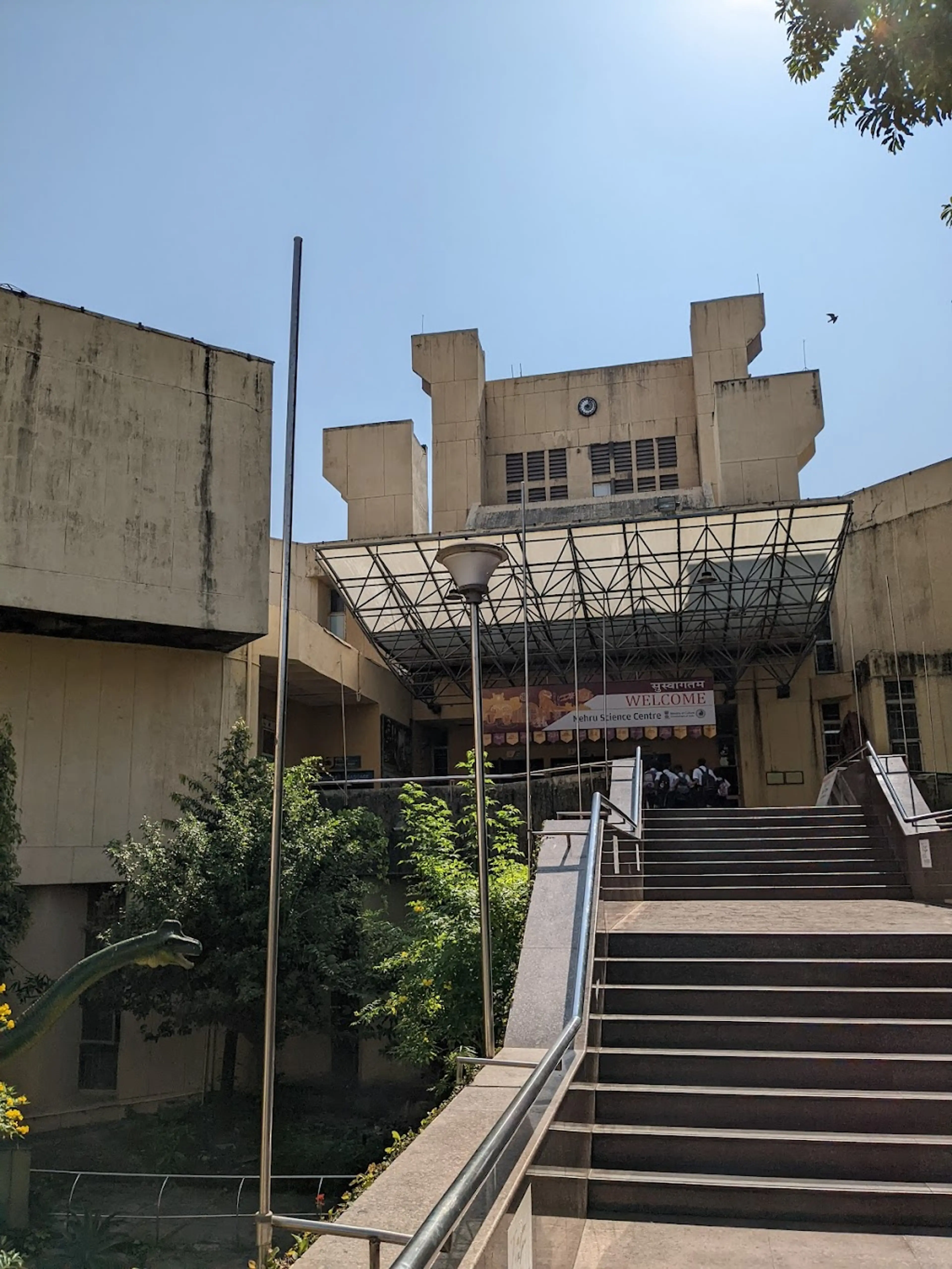
10Nehru Science Centre
The Nehru Science Centre is the largest interactive science centre in India. It is located in Worli, Mumbai. The centre is named after India's first Prime Minister, Jawaharlal Nehru.

11Bandra-Worli Sea Link
A cable-stayed bridge that links Bandra with Worli, offering stunning views of the city and the sea.
Local Food and Drinks (12)

Vada Pav
A popular fast food in Mumbai, Vada Pav is a spicy potato filling sandwiched between buns and layers of spicy garlic and green chutney.
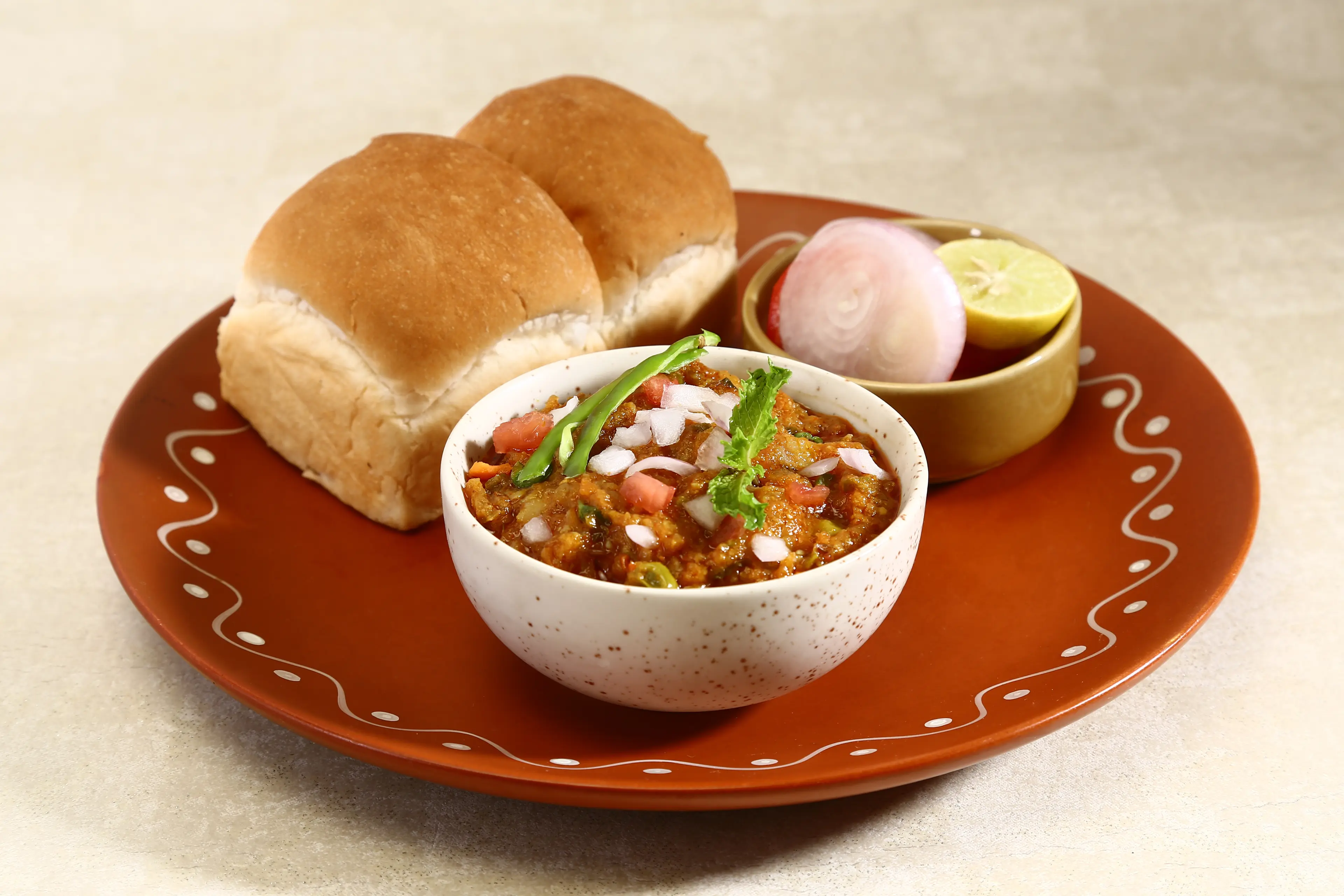
Pav Bhaji
A fast food dish from Mumbai, Pav Bhaji is a thick and spicy vegetable curry, served with a soft bread roll.

Bhelpuri
A savory snack, Bhelpuri is made of puffed rice, vegetables, and a tangy tamarind sauce. It's a popular street food in Mumbai.
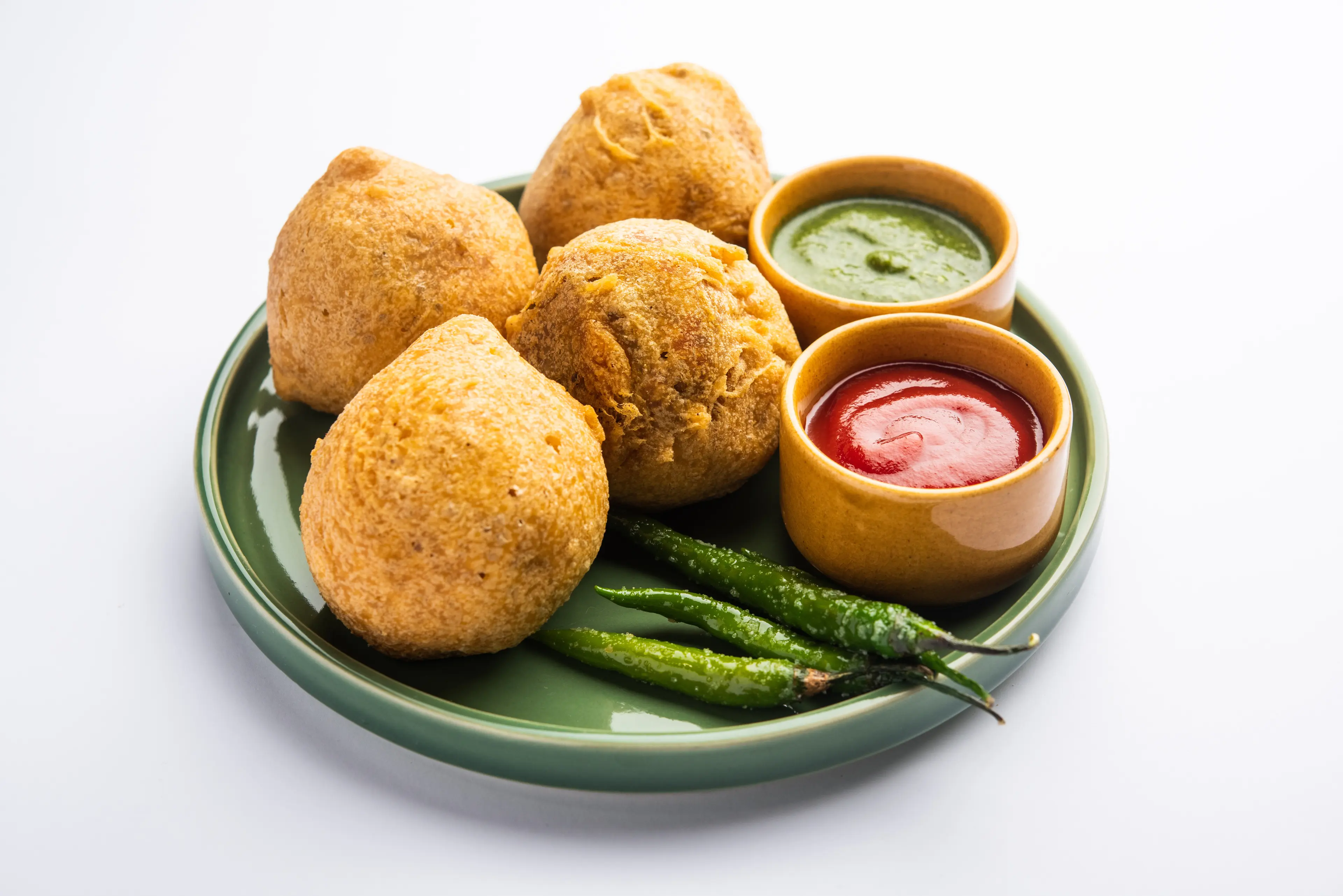
Batata Vada
A popular snack in Mumbai, Batata Vada is a spicy potato dumpling, deep-fried and served hot with chutney.

Pani Puri
A popular street snack in Mumbai, Pani Puri consists of a round, hollow puri filled with a mixture of flavored water, tamarind chutney, chili, chaat masala, potato, onion, and chickpeas.

Masala Chai
A flavored tea beverage made by brewing black tea with a mixture of aromatic Indian spices and herbs. It's a staple drink in Mumbai.
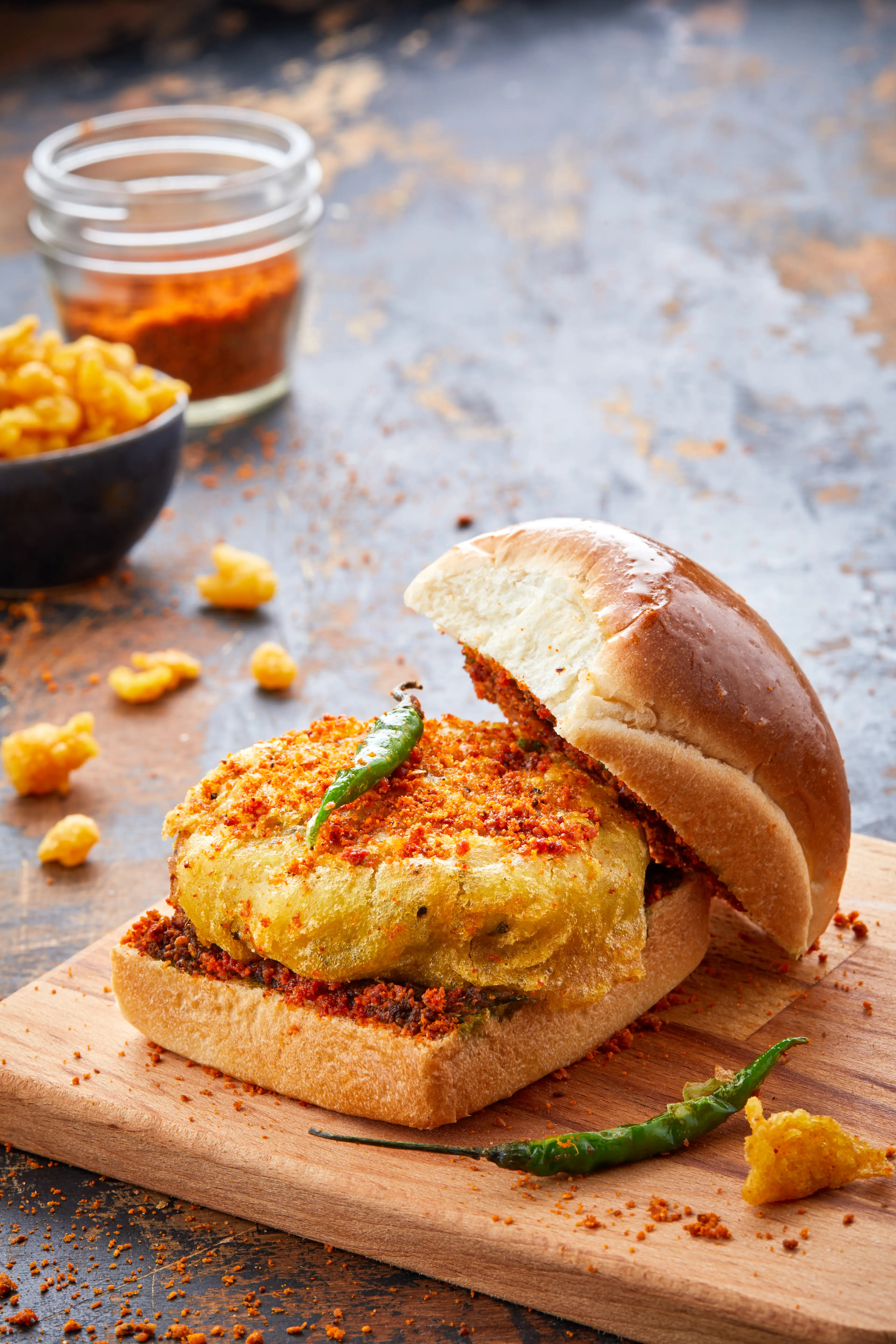
Bombay Sandwich
A vegetarian sandwich native to the city of Mumbai, Bombay Sandwich is filled with various vegetables and is often served toasted.

Modak
A sweet dumpling popular in Mumbai, Modak is often eaten during the Ganesh Chaturthi festival.

Puran Poli
A sweet flatbread, Puran Poli is a popular dessert in Mumbai, usually eaten during festivals.
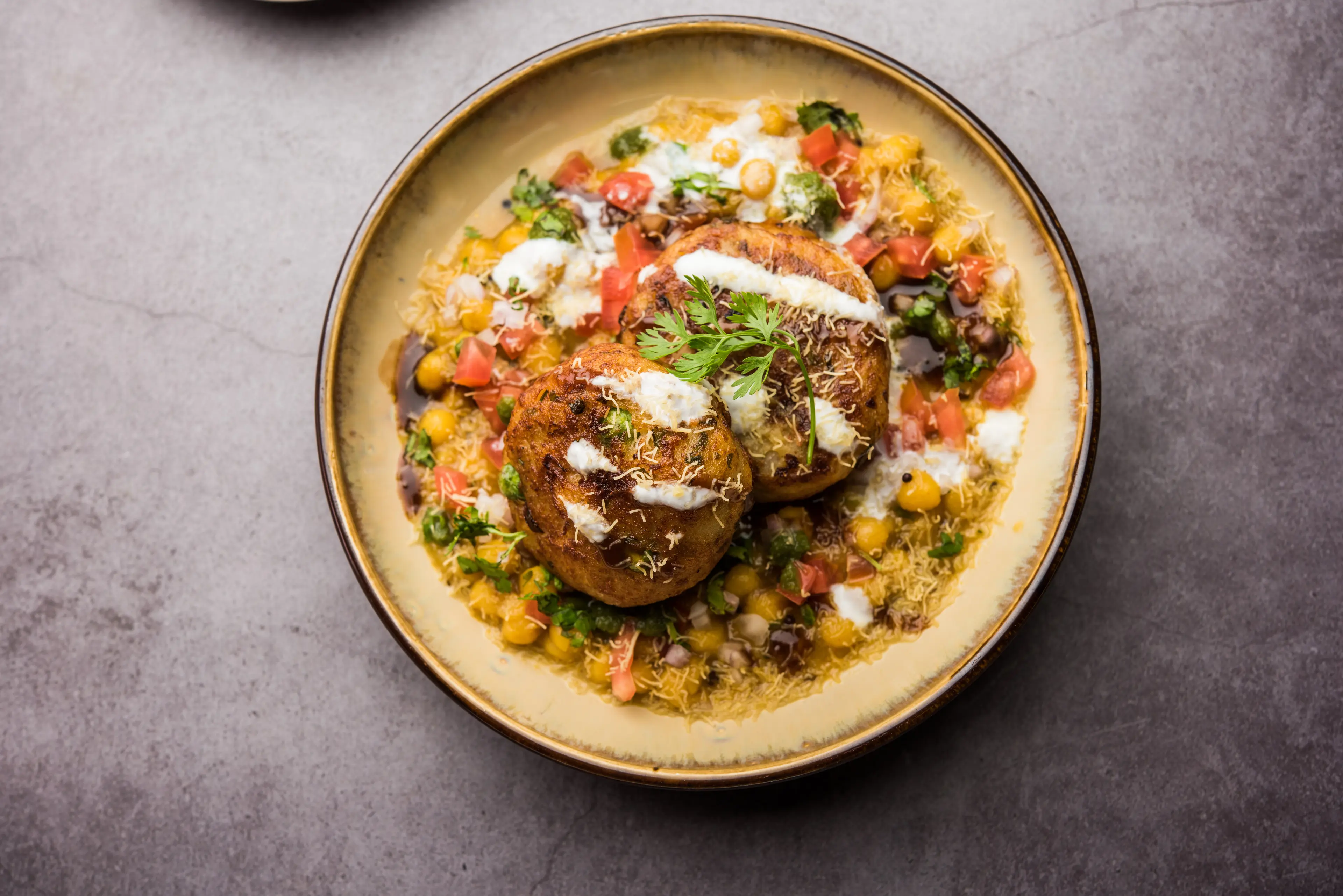
Ragda Pattice
A popular street food in Mumbai, Ragda Pattice is a dish of potato patties, topped with ragda (dried peas curry) and various chutneys.
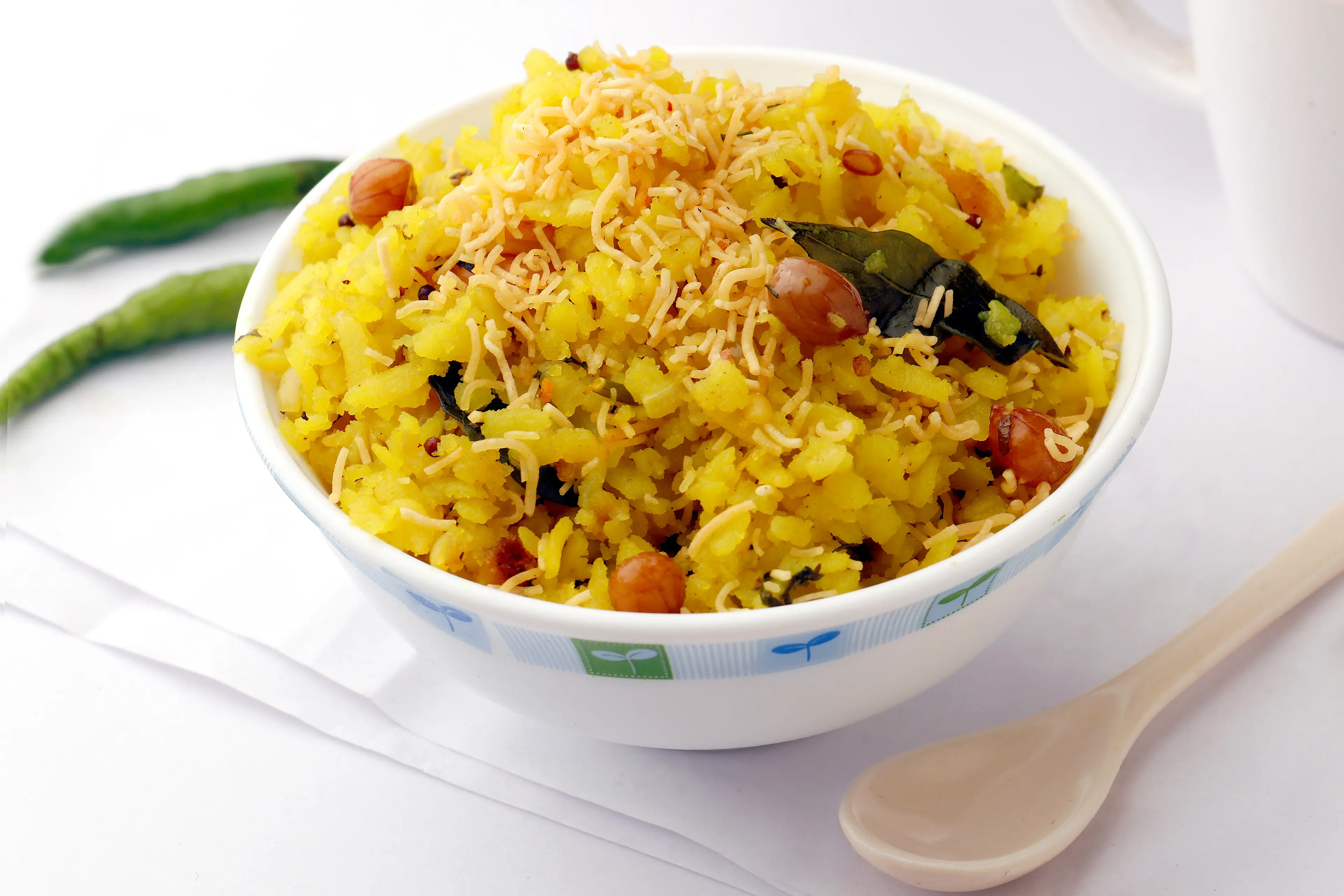
Kanda Poha
A popular breakfast dish in Mumbai, Kanda Poha is a quick and easy dish made from flattened rice, onions, and spices.
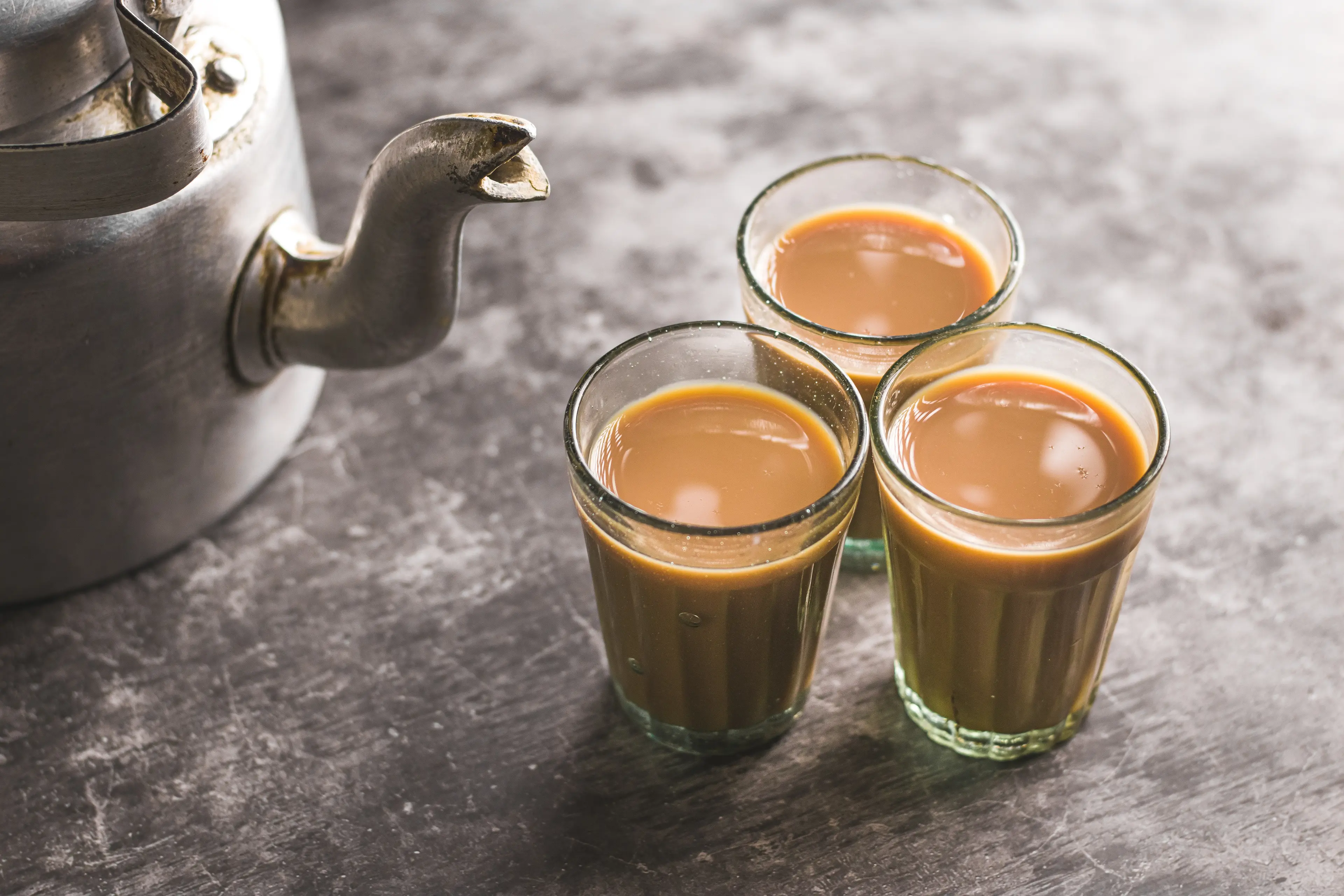
Cutting Chai
A half serving of tea, Cutting Chai is a popular beverage in Mumbai, often consumed during breaks.
Best time to visit
The best time to visit Mumbai, India, as a tourist is during the winter season, from November to February. During this time, the city experiences a pleasant climate with temperatures ranging from 17 to 30 degrees Celsius. It's perfect for sightseeing and exploring the city's numerous attractions. Avoid the monsoon season from June to October, as heavy rains can disrupt travel plans.
How to get around
Local Trains
Local trains are the lifeline of Mumbai, connecting the farthest suburbs to the heart of the city. They are divided into three lines: Western, Central, and Harbour. They are the fastest and most economical way to travel around the city, but can be extremely crowded during peak hours.
Buses
Operated by the Brihanmumbai Electric Supply and Transport (BEST), buses are a reliable and economical way to get around Mumbai. They cover routes that are not accessible by trains. Buses are less crowded than trains, but can be slower due to traffic.
Taxis
Taxis are a convenient way to travel around Mumbai. They are available 24/7 and can be hailed from the street or booked through various taxi services. There are two types of taxis in Mumbai: black and yellow taxis, and radio taxis. Black and yellow taxis are more common and cheaper, while radio taxis are air-conditioned and offer a more comfortable ride.
Auto Rickshaws
Auto rickshaws are a popular mode of transport in the suburbs of Mumbai. They are not allowed in the main city area. They can be hailed from the street and are a cheap and quick way to get around, especially for short distances.
Ridesharing
Ridesharing services like Uber and Ola are widely available in Mumbai. They offer a convenient and comfortable way to travel around the city. You can book a ride using their respective apps and the fare is calculated based on the distance and time of travel.
Ferries
Ferries are a fun and scenic way to travel in Mumbai. They operate between the Gateway of India and Elephanta Caves, and between Marve Beach and Manori. They offer a unique perspective of the city and are a great way to escape the city's traffic.
Private Car Hire
Private car hire services are available in Mumbai. They offer the convenience of having a car at your disposal for the duration of your stay. This is a good option if you plan on doing a lot of sightseeing or if you prefer the comfort and convenience of a private vehicle.
Suburban Rail
The suburban rail network is extensive and connects different parts of the city. It is a fast and efficient way to travel, especially during peak hours when the roads are congested. However, the trains can be very crowded.
Bicycle
Bicycling is not a common mode of transport in Mumbai due to the heavy traffic and lack of dedicated cycling lanes. However, there are some areas like the Bandra Kurla Complex where cycling is promoted and bicycles can be rented.
Foot
Walking is a good way to explore the city, especially the historic areas like South Mumbai. Many of the city's attractions are within walking distance of each other. However, be aware of the traffic and the heat during the summer months.
Important information
Currency₹ INR
Time zoneUTC+5.5
Driving sideLeft
Emergency phoneAmbulance: 102; Fire: 101; Police: 100, 103 (traffic accident)
Drinking waterOpt for bottled water
Power sockets
Voltage230 V
Things to know about Mumbai, India as a first time visitor
1
Mumbai is India's financial capital and is a bustling metropolis.
2
The city is known for its heavy traffic, so plan your travel time accordingly.
3
Public transportation is widely available, including trains, buses, and auto-rickshaws.
4
Mumbai has a tropical climate, with a very hot summer (March to June) where temperatures can reach up to 104°F (40°C), and a monsoon season (June to September) with heavy rains.
5
English is widely spoken in Mumbai, especially in hotels, restaurants, and tourist areas.
6
The city is generally safe, but like any big city, it's important to be aware of your surroundings and keep an eye on your belongings.
7
Street food is a big part of Mumbai's culture. Try local specialties like vada pav and pav bhaji, but make sure to eat at reputable stalls to avoid getting sick.
8
Tipping is customary in Mumbai. A 10% tip is usually expected in restaurants.
9
Mumbai is a city that never sleeps, with a vibrant nightlife that includes bars, clubs, and live music venues.
10
The city is also known for its film industry, Bollywood. You might even spot a celebrity while you're there.
11
Mumbai has a diverse mix of cultures, religions, and languages. Respect for all is important.
12
Dress modestly, especially when visiting religious sites. Women should carry a scarf for covering their heads.
13
Bargaining is common in markets. Don't be afraid to negotiate prices.
14
Avoid drinking tap water. Bottled water is widely available and safer to drink.
15
Mumbai is a shopper's paradise, offering everything from high-end designer boutiques to bustling street markets.
16
The city has a rich history and is home to many UNESCO World Heritage Sites.
17
Mumbai is a city of contrasts, with modern skyscrapers standing next to colonial-era buildings and slums.
18
The city can be quite noisy, with constant honking from cars and auto-rickshaws. Earplugs might be useful if you're a light sleeper.
19
Mumbai is a foodie's paradise, offering a wide range of cuisines from different parts of India and the world.
20
Carry some cash with you. While credit cards are widely accepted, small vendors and auto-rickshaw drivers usually prefer cash.
Basic Marathi to know as a first time visitor
English phrase | Native phrase | Pronunciation | When to use it |
|---|---|---|---|
Hello | Namaste | na-mas-te | Greeting someone |
Goodbye | Alvida | Al-vee-da | Saying goodbye |
Thank you | Dhanyavaad | Dhan-ya-vaad | Expressing gratitude |
Please | Kripya | Kri-pya | Making a polite request |
Yes | Haan | Haan | Agreeing with someone |
No | Nahi | Na-hee | Disagreeing with someone |
Excuse me | Maaf kijiye | Maaf ki-ji-ye | Getting someone's attention |
I'm sorry | Mujhe maaf kijiye | Mujhe maaf ki-ji-ye | Apologizing |
I don't understand | Mujhe samajh nahi aaya | Mujhe samajh na-hee aaya | When you don't understand something |
Do you speak English? | Kya aap angrezi bolte hain? | Kya aap an-gre-zi bol-te hain? | Asking if someone speaks English |
How much does this cost? | Yeh kitne ka hai? | Yeh kit-ne ka hai? | Asking the price of something |
Where is the bathroom? | Shauchalaya kahan hai? | Shau-cha-laya ka-han hai? | Looking for a bathroom |
I need help | Mujhe madad chahiye | Mujhe ma-dad cha-hi-ye | When you need assistance |
Call the police | Police ko bulao | Police ko bu-lao | In case of an emergency |
I am lost | Mujhe gum ho gaya | Mujhe gum ho gaya | When you're lost |
Can I use your phone? | Kya main aapka phone istemal kar sakta hoon? | Kya main aap-ka phone is-te-mal kar sak-ta hoon? | When you need to make a phone call |
Can you help me? | Kya aap meri madad kar sakte hain? | Kya aap me-ri ma-dad kar sak-te hain? | When you need help |
Where is the nearest hospital? | Sabse nazdeeki aspataal kahan hai? | Sab-se naz-dee-ki as-pa-taal ka-han hai? | In case of a medical emergency |
I need a doctor | Mujhe ek doctor ki zarurat hai | Mujhe ek doc-tor ki za-ru-rat hai | When you're not feeling well |
Can you recommend a good restaurant? | Kya aap ek acchi restaurant ka naam bata sakte hain? | Kya aap ek ach-chi res-tau-rant ka naam ba-ta sak-te hain? | When looking for a place to eat |
Packing List
Clothing
Lightweight clothing
Underwear
Socks
Sleepwear
Swimwear
Comfortable walking shoes
Sandals
Hat or cap
Sunglasses
Lightweight jacket or sweater
Raincoat or umbrella
Toiletries
Toothbrush and toothpaste
Shampoo and conditioner
Body wash or soap
Deodorant
Razor and shaving cream
Makeup and makeup remover
Sunscreen
Insect repellent
Hand sanitizer
First-aid kit
Prescription medications
Travel-size laundry detergent
Travel documents and essentials
Passport
Visa
Driver's license
Airline tickets
Hotel reservation confirmations
Travel insurance documents
Emergency contacts and important addresses
Credit and debit cards
Cash in local currency
Electronics and gadgets
Smartphone
Charger for smartphone
Power bank
Headphones
Laptop and charger
Camera and charger
Memory cards for camera
Travel adapter
Miscellaneous items
Travel pillow
Earplugs and eye mask
Snacks
Water bottle
Books or e-books
Travel guide and map
Notebook and pen
Tissues
Reusable shopping bag
Weather Conditions
Mumbai, known for its tropical climate, experiences three major seasons: winter, summer, and monsoon. During the winter months from November to February, the weather is quite pleasant with temperatures ranging from 17°C (63°F) to 30°C (86°F). This is the best time to visit Mumbai as the humidity is less, and the cool breeze from the Arabian Sea makes sightseeing enjoyable. Remember to carry light woolens as evenings can get a bit chilly. The summer months from March to June can be quite hot and humid with temperatures soaring up to 40°C (104°F). If you're visiting during this time, it's advisable to stay hydrated and wear light, breathable clothing. Don't forget your sunscreen and hats to protect against the strong sun. The monsoon season from June to September sees heavy rainfall due to the southwest monsoon. The city can get waterlogged, causing disruptions in public transport. If you're planning to visit during the monsoon, be prepared for unpredictable showers and carry waterproof gear. However, the rain-washed city has a charm of its own, and the lush green landscapes are a sight to behold. Regardless of when you visit, it's always a good idea to check the weather forecast before your trip to pack appropriately and plan your activities. Mumbai is a bustling city with a lot to offer, and being prepared for its weather will ensure you have a comfortable and enjoyable trip.
| Month | Hi / Lo (°C) | Weather Overview |
|---|---|---|
January | 31° / 16° | January is a pleasant month to visit Mumbai, with temperatures ranging from 16°C to 31°C. It's the perfect time to explore the city without feeling too hot. |
February | 32° / 18° | February is slightly warmer than January, but still comfortable for sightseeing. The temperatures range from 18°C to 32°C. |
March | 33° / 21° | March sees a rise in temperature, ranging from 21°C to 33°C. It's a good time to visit the beaches. |
April | 33° / 24° | April is the beginning of the hot season, with temperatures ranging from 24°C to 33°C. It's a good time to visit indoor attractions like museums. |
May | 34° / 27° | May is quite hot, with temperatures ranging from 27°C to 34°C. It's a good time to visit the beaches in the early morning or late evening. |
June | 32° / 26° | June marks the beginning of the monsoon season, with temperatures ranging from 26°C to 32°C. It's a good time to experience the city's rain-soaked beauty. |
July | 30° / 25° | July is in the middle of the monsoon season, with temperatures ranging from 25°C to 30°C. It's a good time to enjoy the city's lush greenery. |
August | 30° / 25° | August continues the monsoon season, with temperatures ranging from 25°C to 30°C. It's a good time to visit the city's parks and gardens. |
September | 31° / 25° | September sees the end of the monsoon season, with temperatures ranging from 25°C to 31°C. It's a good time to visit the city's outdoor attractions. |
October | 34° / 24° | October is a transitional month, with temperatures ranging from 24°C to 34°C. It's a good time to visit the city's festivals. |
November | 34° / 21° | November is a pleasant month to visit Mumbai, with temperatures ranging from 21°C to 34°C. It's a good time to explore the city's markets. |
December | 32° / 18° | December is a cool and comfortable month, with temperatures ranging from 18°C to 32°C. It's a perfect time to explore the city's architecture and heritage sites. |
Did you know?
Places near by Mumbai, India

Elephanta Caves
A UNESCO World Heritage Site, these caves are a collection of cave temples predominantly dedicated to the Hindu god Shiva.

Lonavala
A hill station surrounded by green valleys in western India near Mumbai, it's known for its production of hard candy known as chikki.

Khandala
Another hill station in the Western Ghats, known for its views, waterfalls, and forts.

Alibaug
A coastal town and a municipal council in Raigad District in the Konkan region of Maharashtra, India. It is known for its beaches and forts.

Matheran
The smallest hill station in India, it is located on the Western Ghats range at an elevation of around 800 m (2,625 feet) above sea level.

Pune
A sprawling city in the western Indian state of Maharashtra, it was once the base of the Peshwas (prime ministers) of the Maratha Empire.

Nashik
An ancient holy city in Maharashtra, it is known for its links to the “Ramayana” epic poem.

Shirdi
Famous for the shrine of 'Sai Baba', it is a major pilgrimage site.

Mahabaleshwar
A hill station located in the Western Ghats range. With one of the few evergreen forests of India, it served as the summer capital of Bombay province during the British Raj.

Aurangabad
A city in the Indian state of Maharashtra, it is known for the 17th-century marble Bibi ka Maqbara shrine, styled on the Taj Mahal.